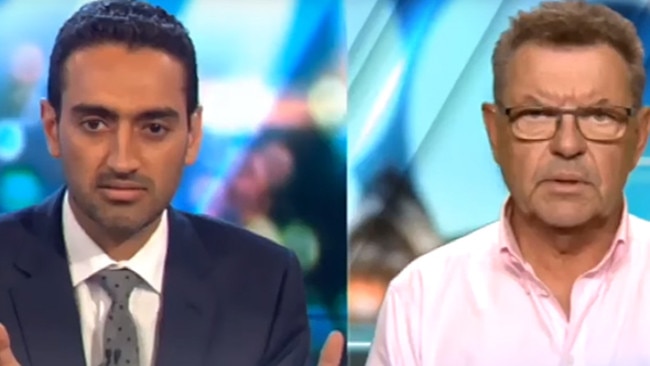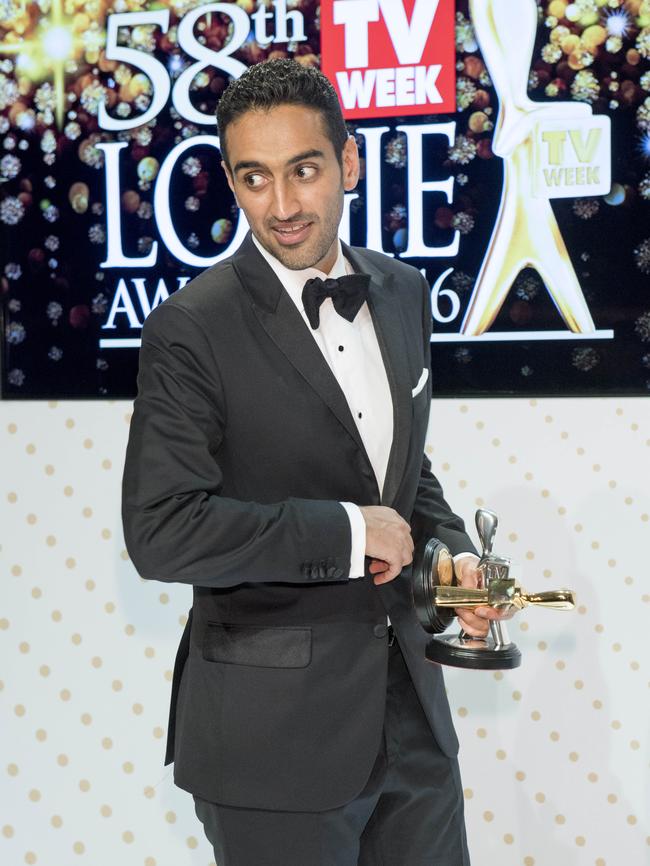
Another week, another terrorist atrocity in Britain — the third one this year — resulting in the murder of innocents.
In Melbourne this week Somali-born terrorist Yacqub Khayre, reportedly inspired by Islamic State, shot dead another man. Like the ringleader of the London Bridge massacre, Khuram Butt, Khayre had entered his adopted country as a refugee.
So much for ASIO director-general Duncan Lewis’s dismissive assertion last month that there was “absolutely no evidence to suggest there is a connection between refugees and terrorism”.
Lewis is just one of many officials whose trustworthiness will suffer further should they continue to respond to these tragedies with off-the-shelf shibboleths.
Another casualty in the credibility stakes is the television terrorism expert, perhaps best personified by academic, TV presenter, and media darling Waleed Aly. In many ways the terrorism expert’s demise is similar to that of the American television evangelist, the conduit of the Almighty to man via the cable.

At the core of televangelism is the personality cult — not of a Christian god whose actions it purports to interpret and rationalise, but that of the televangelist himself. Coiffured, manicured, and charismatic, they were followed by millions of naive sheep. Televangelism peaked in the 1980s, but fell into disrepute after ministers like Jim Bakker and Jimmy Swaggart were exposed for the fornicators and false prophets that they were.
The televangelist, and what might be termed the terrorism evangelist have many parallels. Both profess esoteric knowledge which, despite their attempts to sound profound, often descends into gibberish. In the televangelist’s case, it’s speaking in tongues. In Aly’s case, it’s verbal sludge.
“Our world is now one that is an increasingly polarised and polarising contest between new frontiers of cosmopolitism on the one hand and quite responsive and symbiotically related frontiers of atavism on the other”, said Aly last year in response to the Orlando nightclub massacre. Fittingly, his thesis, the subject of his recently awarded doctorate in philosophy, was titled ‘Towards a structuration theory of global terrorism’. Plain English, it seems, is for the plebs.
Both share a penchant for the absurd. In 2015, televangelist Jim Bakker predicted that the world would end, the reason being that God had told him to wear black underpants. Aly, while not quite as wacky, has made claims that are ludicrous and verge on risible. Writing in the aftermath of the Boston Marathon bombing in 2013, he postulated that terrorism was but a “perpetual irritant” that was no “existential threat”. Praising President Obama’s comments in response to the bombing “People should not jump to conclusions before we have all the facts’’, Aly immediately and ironically went on to predict that those responsible were “self-styled American patriots”. In fact, they were Islamic terrorists who had been granted asylum in America (Ping ASIO).
Like the televangelist, Aly hosts his own television show, The Project. The kindest that can be said is that its analysis of terrorism is about a sophisticated as a televangelist’s expertise in theology. It’s all about the ratings in both cases. As with the televangelist, there’s more than a touch of moral superiority and condescension about Aly. Nothing illustrated this better than his clash last week with 2GB host Steve Price over the link between refugees and terrorism, with Aly smugly attempting to conflate correlation with causation.
Take him away from his stacked panel and put him before an incisive inquisitor, however, and he’s very subdued, as Christopher Hitchens masterfully demonstrated in 2011 on ABC’s Q&A when he called out Aly’s equivocating on Islam and homosexuality.
But the most poignant example of the similarities between the televangelist and the terrorism evangelist is the unquestioning adulation of his gullible followers. The Jimmy Swaggart Ministries is a thriving business to this day, despite its namesake having been caught with a prostitute in 1988 and again in 1991. Aly, like the televangelists, has a legion of happy clappers and high fivers ready to give fulsome praise for his every utterance, with the “Waleed nails it!” catchcry. “Can’t we just make Waleed Aly Prime Minister?” gushed MamaMia like a ditzy adolescent.
It makes for an environment that doesn’t lend itself to objectivity, and terrorism evangelists like Aly have an insurmountable conflict of interest in attempting both disinterested analysis while specialising in cheap gotcha grabs. While not quite as flamboyant as Aly, other self-styled terrorism experts with high public profiles are equally open to accusations of partisan commentary.
Immediately following Sydney’s Lindt Café siege in December 2014, then counter-terrorism academic and now federal Labor MP Anne Aly argued against Man Monis’s being labelled as a terrorist. Contrary to her assertion, NSW coroner Michael Barnes found that the siege was in fact a “terrorist incident”. It’s not the only time Anne Aly’s pronouncements on such matters have been discredited. Speaking in November 2016 on the subject of the government’s proposed reform of the Racial Discrimination Act’s section 18C, she objected on the basis that it had the potential to jeopardise “national security”.
This is not to suggest that academics have no place in addressing the scourge of terrorism. The terrorism academic, who more often is your quiet behind-the scenes analyst, bears little relation to the terrorism evangelist, whose primary focus is boosting his profile while seeking public affirmation. Likewise the unassuming but committed Christian is markedly different from the noisy televangelist who shouts about his virtue from the rooftops. As for those of us in the audience, whether one religious or secular, it’s up to us to be more rigorous in ascertaining whether our experts have a solid foundation, or feet of clay.




To join the conversation, please log in. Don't have an account? Register
Join the conversation, you are commenting as Logout